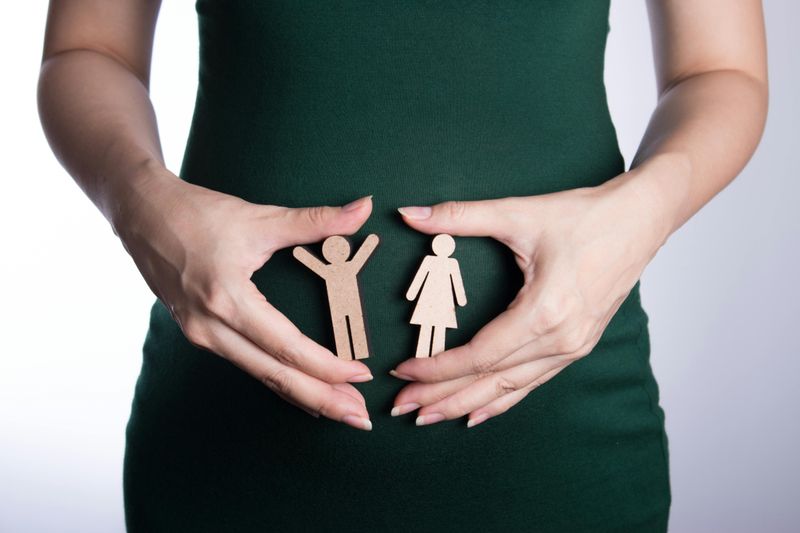It’s Not Just Stress: 11 Factors That Make Women More Prone to Depression Than Men, According to a New Study

Depression doesn’t discriminate, but it definitely doesn’t affect everyone equally. According to a new study, women are twice as likely to experience depression as men—and researchers are finally uncovering why. The reasons are complex, spanning biology, psychology, and society itself.
1. Hormonal Fluctuations Throughout Life

From puberty to menopause, women’s hormones can be a rollercoaster—and not the fun kind with snacks and photo ops at the end. Estrogen and progesterone affect serotonin levels, the brain’s natural “feel-good” chemical, meaning mood can dip sharply during hormonal changes.
When levels swing up or down, so does emotional stability. That’s why so many women notice mood shifts before their periods, during pregnancy, or after giving birth. The body’s internal chemistry is in flux, and the brain feels it first.
These fluctuations aren’t just physical—they can alter sleep, energy, and focus, creating the perfect storm for depression to creep in. It’s biology doing what it does best: complicating things.
2. Postpartum and Reproductive Challenges

Bringing new life into the world sounds magical—but no one talks enough about the emotional chaos that can follow. Postpartum depression affects about one in seven new mothers, and it’s not simply “baby blues.” It’s a deep, consuming sadness that often arrives when women least expect it.
Hormones crash dramatically after childbirth, leaving the brain struggling to recalibrate. Add sleep deprivation, isolation, and the pressure to “bounce back,” and even the most resilient women can feel trapped in a fog.
Society often romanticizes motherhood while ignoring the reality of recovery. When the glow of congratulations fades, many new moms are left facing loneliness and anxiety in silence.
3. The Invisible Weight of Emotional Labor

It’s not just chores—it’s the constant mental list: remembering birthdays, noticing moods, scheduling appointments, smoothing over tension. Emotional labor is the unpaid, unrecognized job that women perform daily.
This invisible work adds up. When you’re always anticipating others’ needs, your own emotions get pushed to the bottom of the to-do list. The result? Chronic stress and burnout disguised as “being fine.”
Over time, the brain becomes exhausted from carrying the emotional load of everyone else. And when there’s no space to rest or feel supported, depression can sneak in like a silent roommate who refuses to leave.
4. Body Image and Societal Beauty Pressure

If mirrors could talk, they’d probably say, “Don’t believe everything you see on Instagram.” From childhood, women are taught to measure their worth in inches and likes, not in confidence or character.
The relentless pursuit of perfection takes a toll. Comparing yourself to filtered faces and impossible standards can leave even the most confident woman doubting her reflection.
That constant self-criticism doesn’t just bruise self-esteem—it rewires how the brain perceives worth. Living under a microscope makes it nearly impossible to feel “enough,” creating fertile ground for depression and anxiety to take root.
5. Gender Roles and Inequality

The phrase “having it all” should probably come with a disclaimer. Women are often expected to excel at work, care for families, and still look effortlessly put together.
The mental load of trying to meet these expectations is enormous. Inequality in the workplace, unfair division of household labor, and social pressure to “do it all” create a cycle of exhaustion that’s hard to escape.
When women feel undervalued or unsupported—both professionally and personally—it’s no wonder emotional fatigue follows. Depression often grows quietly in the shadow of impossible standards.
6. Economic and Financial Stress

Money stress hits harder when you’re earning less for the same work. The gender pay gap doesn’t just affect bank accounts—it impacts mental health too.
Financial insecurity creates a constant sense of instability, especially for women balancing children, bills, and sometimes single parenthood. It’s tough to feel hopeful about the future when you’re always one emergency away from debt.
Even small financial wins can feel overshadowed by the pressure to stretch every dollar. The cycle of earning less and spending more emotional energy to make ends meet leaves many women mentally drained.
7. Higher Exposure to Trauma and Abuse

For too many women, trauma isn’t a rare experience—it’s a recurring one. Sexual assault, harassment, and domestic violence remain distressingly common, leaving deep emotional scars that don’t fade easily.
Even when the physical wounds heal, the psychological impact lingers. Trauma changes the brain’s chemistry, making depression and anxiety more likely to take hold.
What makes it worse is how often women are told to “move on” or “get over it.” Healing requires validation and safety—two things society doesn’t always provide.
8. Adolescent Vulnerability

Teen girls today are navigating pressures their mothers couldn’t have imagined. Between social media comparison, body image concerns, and academic expectations, it’s no wonder depression rates spike during adolescence.
The teenage brain is still developing emotional regulation skills, so rejection or failure can feel catastrophic. Add in hormonal changes, and emotions become magnified like everything’s set to high volume.
Without strong emotional support systems, young girls learn to internalize their pain rather than express it. That early silence can lay the groundwork for long-term mental health struggles.
9. Caregiver Burnout

Caring for others is often described as noble—but it can also be depleting. Many women take on caregiving roles for children, aging parents, or even partners, often without enough rest or appreciation.
When self-care becomes an afterthought, emotional exhaustion builds up quickly. The constant giving without receiving drains both energy and joy.
It’s not selfish to admit that love and responsibility can coexist with burnout. Recognizing that truth might be the first step in preventing compassion from turning into depression.
10. Cultural Conditioning to “Stay Strong”

How many times have women been told to “hold it together”? Society celebrates strength in women but rarely allows vulnerability. Being “the strong one” becomes a mask that hides pain.
This emotional armor may protect in the short term, but it often prevents real healing. Constantly pretending to be okay eventually leads to emotional collapse.
True resilience isn’t about never breaking—it’s about allowing yourself to feel without shame. Yet cultural conditioning often makes that permission nearly impossible.
11. The Power—and Limits—of Support Networks

Friendship circles and sisterhoods can be a lifeline, but they’re not always enough. Women are great at showing up for others—just not always for themselves.
Social connection does buffer against depression, yet when everyone’s struggling, emotional energy runs thin. Sometimes, even surrounded by people, loneliness lingers.
Learning to ask for help, not just give it, is key. Support networks are powerful, but they work best when vulnerability flows both ways.

Comments
Loading…